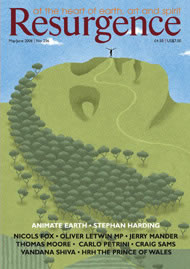MILLENNIA PASS – then, in just one lifetime, the food system changes out of all recognition. Food, previously bought from a multitude of local growers limited by season, now comes from around the world in a trade dominated by just four or five corporations. The weekly trip to a supermarket is convenient, the choice staggering; but there is a downside. Felicity Lawrence delves deeply into much more than the lies written on the label: she covers all aspects of the UK food industry. And her findings are frightening. Food is now a by-product of power and profit.
Here are some aspects. The systematic cruelty to animals in a supposedly civilised country is scarcely believable. Antibiotics enable animals to stay alive in appalling conditions, grow fat artificially and, incidentally, develop superbugs that compromise healthcare in hospitals. There seems to be zero concern for nutritional value. Everything possible is inflated with water because it is cheap and heavy; you probably didn’t know that half the weight of a white sliced loaf is water and that it has additives that are known to affect the heart. Many foods, not necessarily meat, are injected with pig or cow protein without warning to Jews, Muslims or Hindus. Salad bags are pumped full of gas to keep a fresh appearance until opened. Lawrence even found contaminated food destined for pets being scrubbed with bleach and distributed back into the human food chain, untraceably, to a thousand outlets. The list is endless. And the government, not wishing to offend powerful commercial interests, seems only concerned to ‘reassure’ the public. I came away thinking that if the UK suffers a pandemic, it deserves it.
Lawrence describes how supermarkets use their immense power to dictate exactly what and when produce must be received from farmers. If the weather forecast is good they demand additional salad by the morning and the farmer rings around for gangs to work overnight. Gangmasters are a direct result of the system, and their exploitation of two million illegal workers takes us back to employment conditions not seen since the early days of the industrial revolution.
Lawrence looks at the international implications. Africa’s plight, for example, is not so much due to lack of aid as to the stranglehold of corporations that drive prices to the bottom and prevent value being added at source. She quotes one study that found a Ugandan farmer receiving 14 cents for coffee, 12 cents being added to the value within the country, and the same amount of coffee eventually retailing at $26.40.
As many as 40% of the lorries on our roads are distributing food – for example, cabbages are taken by road from a Devon farm to a massive processing plant in the Midlands, then packed cabbages are transported back to Devon for sale. Do your own count when you are next on the motorway, and ask why the government wants to build yet more roads. In the lorry-drivers’ protest in 2000 “we came within hours of the country not having a loaf to eat,” the Federation of Bakers admitted. Pickets may target groceries next time, but if they fail, a fuel crisis will achieve the same thing: supermarket shelves will be empty. A third of our food is imported, much of it by air freight, the fastest-growing emitter of greenhouse gases. The system that has developed as a result of politicians’ reification of market fundamentalism is destroying the climate, and in any case it will collapse when oil depletion bites.
Although Not on the Label is frankly horrifying, it is a gripping read based on fascinating experiences; and the message is clear. ‘They’, the government, must wake up to the cruelty, damage and dangers. But ‘we’, the customers, can make a difference. If we care about nutrition and gender-bending chemicals, if we want food security, if we are worried about global warming, the most effective thing we can do, more effective than giving up the use of a car, is to stop shopping in supermarkets, particularly the big four – Tesco, Asda, Sainsbury’s and Morrisons/Safeway – and get as much of our food as possible from local organic growers.
This is a brilliant book. Read it. And dip into it again and again. You won’t be disappointed.
James Bruges is author of Earth, Air, Fire, Water.







